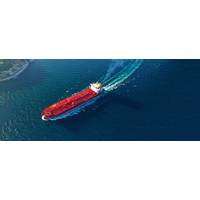Senior Taiwan official visits new Alaska LNG site
A senior Taiwanese government official revealed on Saturday that he visited this week the site of an enormous new LNG project in Alaska, which the Trump administration is pushing to its Asian allies as a possible supply option.
Energy developer Glenfarne said that on Tuesday, 50 companies had expressed formal interest in contracts valued at more than $115 Billion from its Alaska LNG Project. This massive infrastructure project is championed and backed by U.S. president Donald Trump.
Pan Men-an (secretary-general of Taiwan President Lai Ching Te) wrote on his Facebook page that he attended an energy summit in Alaska, at the invitation from U.S. Secretary for Energy Chris Wright, and visited Alaska's North Slope.
The first phase of the project will deliver natural gas approximately 1,230 km (765 mi) from the North Slope region to the Anchorage area.
Pan wrote: "Despite the freezing temperature, we spoke enthusiastically about building resilience as democratic partners to face global climate change and challenges of authoritarianism."
"We have no choice, in the face of international turmoil and trade challenges, but to rise up to the occasion," said he, without mentioning if he had made any deals there.
The presidential office announced late Friday that Pan was accompanied by Fang Jeng Zen, chairman of Taiwan’s state-owned CPC energy company.
CPC signed a nonbinding agreement in March to purchase LNG and invest in this project. Taiwan's President said that the move would ensure energy security for the island.
The Alaska LNG project, if built, will export 20 million metric tonnes of supercooled gas per year.
This would allow U.S. LNG to be delivered directly to Asian markets, without the need to travel through the Panama Canal and around the Horn of Africa. Transit time and costs could be reduced.
Taiwan has promised to increase its energy purchases from the United States to reduce an egregious trade surplus which has angered Washington. (Reporting and editing by Tom Hogue; Ben Blanchard)
(source: Reuters)


